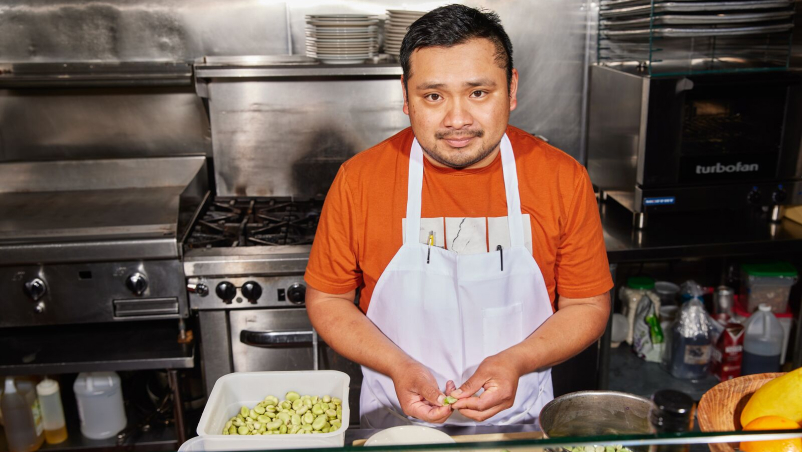Who needs an Illinois food manager certification?
If you operate a restaurant or a business that serves food, you must have a certified food protection manager. Illinois’ Department of Public Health (IDPH) requires each food business to have a certified food protection manager (CFPM) on-site during all hours of operation, so you may need to have more than one on staff to ensure that all shifts are covered.
If you don’t have any employees and plan to operate the business independently, you’ll need to maintain your own food protection manager certification.
FSSMC vs. CFPM certification
In the past, the IDPH required food service workers to get a Food Service Sanitation Manager Certification (FSSMC). But since 2018, this has changed.
Now, the focus is on the CFPM certification. The IDPH no longer issues the old FSSMC certifications.
If you previously had an FSSMC, it’s important to note that it’s no longer valid. You must obtain the CFPM certification to stay up-to-date and compliant with state requirements. This ensures you’re recognized as a qualified food safety professional under the current standards.
Chicago Food Service Sanitation Certificate
Chicago has additional food safety requirements for restaurants and businesses that serve food. A designated Person In Charge (PIC) must always be on the premises when food is prepared or served. The PIC must have a Chicago Department of Public Health (CDPH) food service sanitation certificate from an approved training program.
Employees with a valid CFPM certification from a training program approved by the American National Standards Institute – Conference for Food Protection (ANSI-CFP) may be able to apply for reciprocity.
How to get Illinois food manager certification
To get a food manager license, Illinois employees must complete a training program approved by the IDPH. After completing the training, they must pass an exam approved by the ANSI-CFP with a score of at least 75%.
Training courses and exams are available online and in person. These courses cover a number of topics related to proper food handling, such as:
- Personal hygiene
- Cross-contamination
- Time and temperature
- Receiving and storage
- Food safety management systems
- Training hourly employees
In Illinois, the process is quite efficient if you’re looking to obtain a CFPM license. The required course, which includes the exam time, takes eight hours.
After completing the exam, you may receive your certificate instantly, or it could be sent to you by mail.
Restaurant and food business owners are responsible for obtaining proof that each CFPM has completed the required food protection course and exam.
Proof of certification for these employees must be available upon request by state or local health department inspectors. Physical and electronic certificates are accepted.
Renewal is required every five years for food safety manager certification. Illinois employees must retake the training course and the exam to renew their food safety certification.
How much does Illinois food manager certification cost?
The cost to get your Illinois food safety manager certification varies depending on which ANSI-approved provider you use. Generally, the price for both the training course and exam is around $100 to $150.
Many providers offer materials to help prepare employees for the training and exam for an added fee.
Illinois restaurant owners are not required to cover the fee of the food manager certification. A food manager certificate is considered the employee’s property, and they are permitted to use it at other businesses if they change jobs.
Insurance for Illinois restaurants, caterers, cafes and food service businesses
To protect your restaurant business from everyday risks, it helps to have the right Illinois business insurance policies. Some of the insurance options available for restaurant owners include:
General liability insurance
Illinois general liability insurance provides crucial coverage if your business is liable for an accident that causes property damages or an injury to a third party.
This is especially important in the food service industry, where there’s also coverage for issues like foodborne illnesses. Food service general liability insurance can help protect against additional industry-specific risks.
Workers’ compensation insurance
All businesses with at least one employee in Illinois must carry workers’ compensation insurance. It can help cover medical expenses and lost wages if an employee gets hurt while on the job.
Commercial property insurance
Commercial property insurance safeguards your physical assets, such as inventory and equipment. It helps with repair or replacement costs in situations like vandalism or infrastructure damage, such as a burst pipe.
Commercial auto insurance
Illinois requires all vehicles to have minimum auto insurance coverage of at least $25,000 per person, $50,000 per accident and $20,000 for property damage. If you have business vehicles, this is where commercial auto insurance comes in.
It covers medical expenses, property damage and other related costs if you or an employee gets in an accident while driving a company vehicle.
Illinois food manager certification reciprocity
The IDPH offers reciprocity for employees who already have a food manager certification from a CFP-approved program.
To qualify for reciprocity, the employee must have moved to or started working in Illinois within the last six months. Reciprocal certification expires on the same date listed on the certificate.
Food manager certification vs. food handler license
In addition to having at least one employee with food manager certification, Illinois restaurant and food business owners must ensure the rest of their staff is properly trained.
In the Prairie State, anyone who works with unpackaged food, food-contact surfaces, food equipment, and utensils must obtain a food handler license within 30 days of employment. To earn this certification, employees must complete an approved food safety course and pass an exam.
The Illinois food handler license requirements typically apply to hosts, servers, bussers, on-site event coordinators, kitchen staff and bartenders. The state exempts unpaid volunteers, temporary food establishment employees and employees already certified as food protection managers.
Certified food managers supervise food handlers to ensure proper food safety practices. In addition to complying with state law, making sure your employees have the proper training and certification also helps to protect your business by reducing the risk of foodborne illness.
How NEXT helps support Illinois restaurants, cafes, caterers and food service
NEXT provides tailored Illinois restaurant insurance policies for small businesses and self-employed business owners.
It only takes about 10 minutes to get a quote, review coverage options, choose your policies and download a certificate of insurance.
Our team of licensed insurance advisors is standing by to assist if you have any questions along the way.
Start a free quote with NEXT.






